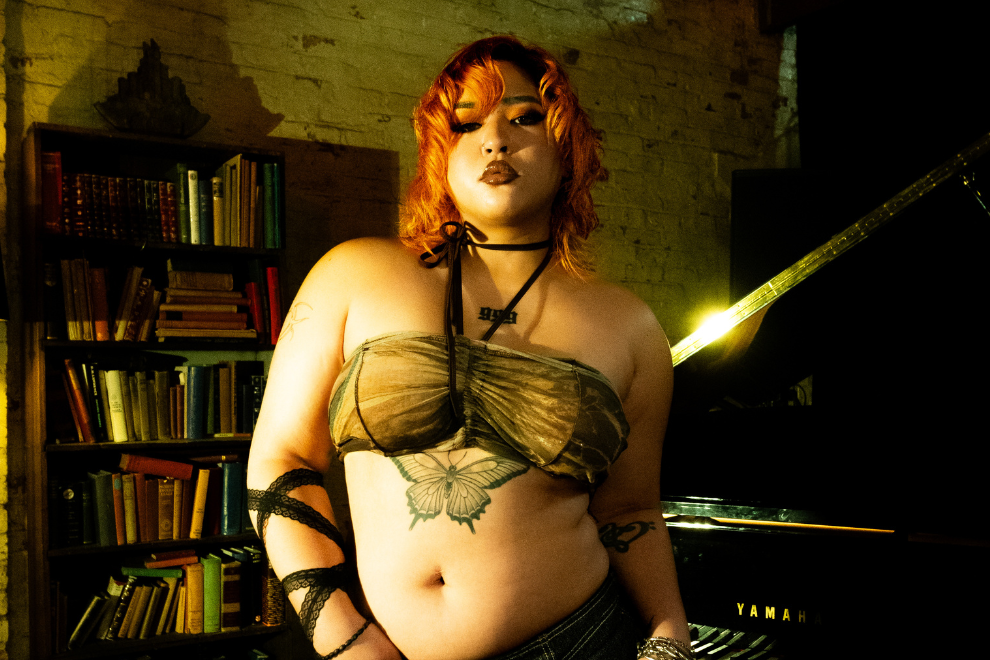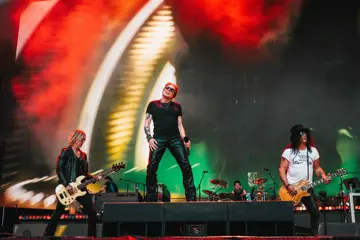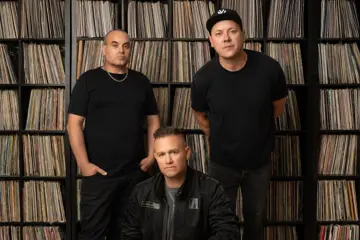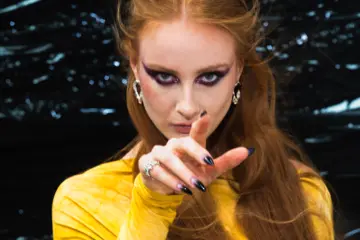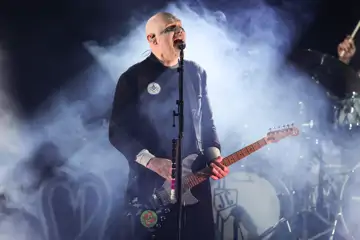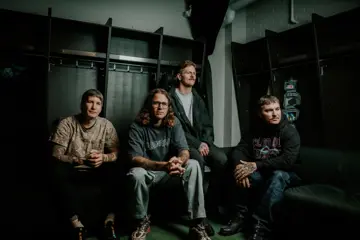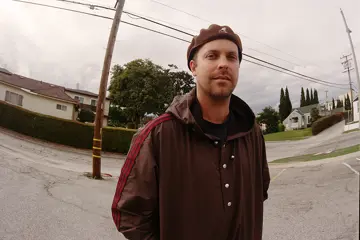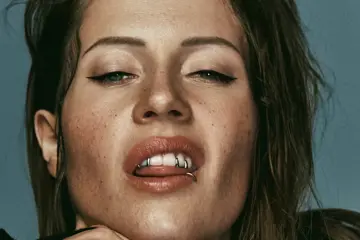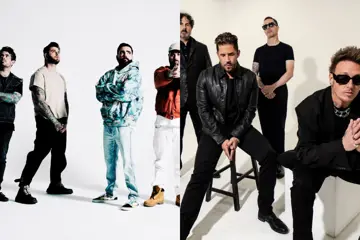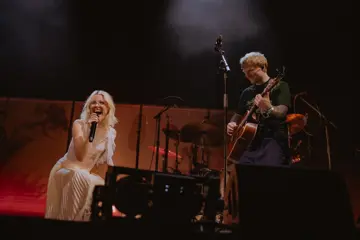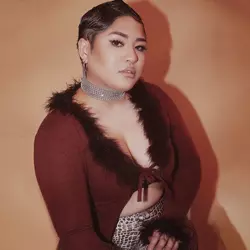 Vetta Borne
Vetta BorneAlthough I don’t believe that being a queer, POC, female producer in a predominantly white male landscape should come to my detriment, along my journey, it definitely has been a factor that has caused biased opinions, and questions of if I’m good enough to be producing for priority artists.
Every step forward feels like a victory against a tide of expectations and biases. My journey into the world of being a producer was both a leap of faith, and a defiant stand against the status quo.
I started as a songwriter. I’ve been the songwriter in sessions for artists all around the world since I was 14 years old. Since that age, I had been uploading songs I produced and written to YouTube, which gained me 150,000 subscribers – but I honestly never took my producing seriously back then. I never really called myself a producer, because at that age, my songwriting was my priority. I wanted people to hear my lyrics, my melodies, and the beats I was making were only made to support that. I never knew of any producer that was a non-male, so I never considered that I was already one.
In 2012, I produced a song called Love You. I wrote and recorded the chorus, sent it to my YouTube friend, whose artist name at the time was D-Pryde, and we uploaded it. That video gained over four million views on both of our channels combined. But still, even then I didn’t consider myself a producer, despite the success the song gained. I didn’t understand that me, making the beat, meant I was a producer. I was 17 years old at the time.
Don't miss a beat with our FREE daily newsletter
I continued doing many sessions as an artist, and songwriter. I didn’t feel like I had much to offer production-wise, given I was already working with some of the best producers in the world who had produced massive hits like life-long friend Djemba Djemba (who produced Sia’s Elastic Heart and Madonna’s Living For Love).
I got very comfortable with staying in the songwriter seat. Or the person behind the microphone. No notes. The beats were perfect.
The only time I’d be comfortable in the producer chair was when I’d work with my friends, or partner at the time, all women, where I knew I felt safe to be be painfully slow, make mistakes, or even make some of the worst beats you’d ever hear in your life, and I wouldn’t be put down. Because my community of friends are such incredible songwriters, the honest feedback greatly built my confidence, and helped me figure out the basics of what it takes to produce a good song. They were my safe space to really grow without having to deal with the expectations of an established male producer, an A&R, executive, or artist looking for their next hit.
In my opinion, the hardest part of becoming a producer is the first few sessions with anybody, when you don’t have any songs that you’ve produced out there for people to hear, all they have to form an opinion of you, are your first sessions, and what you bring to the table. If the song isn’t good, if the session takes forever, if the energy is stressful in the studio, that artist leaves your studio with a “oh, yeah, she’s um… ok” snapshot printed of you, and it sticks, until you prove yourself otherwise.
It wasn’t until years later, 2019, my first session with George Alice, where her manager at the time asked me if I produced, and as these were George’s first few sessions, I felt like I could get away with a “yes… I can produce”, knowing I’m still very green to it all. I had known George’s manager for a long time, and I knew she was an all-round incredible person, so I felt that this was my chance to see where I can really take this, and to see how I’d perform producing for somebody I’ve just met. I had no doubt in my ability to help George write an incredible song, and if all else failed, if my production sucked, I knew that I could get another producer to take over.
In our first session together, George and I wrote Circles. She has a funny story about me literally watching YouTube tutorials on how to produce in front of her while we were writing it. Because she had no music out yet, we had to figure out her sound together. It was my responsibility as the producer, to help her find her direction. She said she wanted to make music like Lana Del Rey and Yaeji, two completely different artists. Somehow, I understood the assignment.
We wrote the entire song to a bassline and guitar, and when George left my house, I did a deep dive into production and did the best I could on the production. I did my best to bring George’s vision to life. Little did I know that would be the start of my journey as a serious producer, as it won triple j unearthed high that year. From then, people quickly took notice.
Shortly after those sessions, I did a writing camp run by KLP called Ricochet, which was an all-non-male camp. I knew of other girls who produced, from heavy internet browsing, but had never had the chance to meet them. That camp is where a lot of the female producers that make the songs you hear on the radio now, met.
I was known in the industry as the top-liner, the songwriter, the artist at the time. So when I applied for the camp, I applied as only a producer. I wanted to push myself. I’m very much a “sink or swim” type personality, I jump in the deep end and figure out how to swim. I work incredibly well under pressure. I shocked most people at that camp, showcasing what I can do as a producer. I think my background being a songwriter and artist really benefited me, with the amount of sessions I have done prior, watching how some of the great producers make their songs. I subconsciously had been learning how to produce for a very long time.
The few people who knew I produced early on were Australian producers M-Phazes, Nic Martin and Styalz Fuego. When I was releasing music as Maribell”, Styalz and Nic were the predominant collaborators on my first EP, there were a couple beats they helped me with, and they both also gave me some of my first sample packs to use.
Soon after, I met M-Phazes, who heard a song I wrote with Nic Martin and he let me use the little studio next to his, for free. Because I was there often, M-Phazes and his manager learned that I was interested in producing, they heard some of the ideas I was working on, sat me down in the office, and they were both like “Why aren’t you telling people you produce? You should be producing!”.
M-Phazes took me in, and would get me to try ideas on songs he was producing. There was a day I asked him if I could just sit and watch him produce, and I really sat next to him for the day, with a pen and paper, and I asked every question about everything he was doing, and he would teach me. He was pretty much teaching me how to produce, for real. He gave me every sample imaginable, told me what plug-ins I need to buy to really get on a professional level. He and his manager really believed in me as a producer, and because I really looked up to those guys, I started to believe it myself too.
One of the biggest hurdles is lack of representation. When everybody around the table looks nothing like you, it’s easy to feel like an outsider. I knew that I was good, I had some of the best in the business mentoring me, but I still didn’t feel like I was good enough to be in the big rooms as the producer. But I realised that my uniqueness was my strength.
I use my history as a songwriter to my full advantage. Before every session, I would let the artist know my workflow, that I like to write and completely record the song first, and then produce around what we write. It took the pressure off me as the beginner producer, knowing that the artist's first impressions could be vital to whether or not we work together again. I made sure the core, the lyrics and melodies were always strong. If the writing is inspired, I knew that my production would only elevate it.
I use my warmth as a woman to my full advantage. The non-male artists that I worked with noticeably were writing much more vulnerable than normal. There were/are plenty of sessions where the artist would cry during our session, because we would write about such personal stories. I realised because it’s just us. They felt safe. They felt they could open up in ways they probably couldn’t if it were any other than a woman in the room with them like that.
I use my emotional vulnerability as a queer to my full advantage. I feel. Deeply. I allow the emotions I’ve experienced to translate into any song I make. I don’t care if the production doesn't have the most “advanced” sounds, or the beat wasn’t made “properly”, whatever that means. As long as the song makes me feel something, I know I’ve done my job right.
Being a queer, POC, female producer allows me to bring a richness of experience and perspective. It means challenging the normative narratives and amplifying voices that have long been silenced. I know how it feels. I know how a lot of things feel. It means pushing boundaries, not just for myself, but for the generations of creators who will come after me. Every session I do is a reminder that authenticity and diversity aren’t just buzz words, but are essential elements that breathe life into art.
I did a writing camp last year 2023, curated by Troye Sivan. I’ve done plenty of camps before, one curated by Oak Felder, another curated by Sarah Aarons and plenty more. What made the camp with Troye different was that it was an all-queer camp. To be surrounded with people who have similar experiences, to have people who look like you, think like you, act like you, in every chair, writing incredible songs, was a perfect, inspired experience. The energy in every room was like no other. You could feel like how much safer everybody felt to completely be themselves.
To this day, I still hear the same words, “I’ve never worked with a female producer before!” And my internal response is always, “Well, you just aren’t looking hard enough.” We are out here. There’s plenty of us who are more than capable of bringing your song to life. It’s you, the artist, the A&R, the writer, who has the choice of choosing us. Of giving us a chance.
I’ve worked in sessions with massive artists. Artists I could have only dreamed of working with. Do I still doubt myself? Absolutely. But realising that isn’t just a woman’s experience. Everybody doubts themselves. Especially when the inspiration takes a little, or a long while to kick in. That’s a universal experience as a producer.
I’m a producer. I shouldn’t have to say I’m a queer, POC, female producer. I’m a producer. A writer. An artist. A storyteller on a mission. I refuse to be confined by labels or limited by expectations. Every project I undertake is a testament to resilience, creativity, and the power of representation. I’m not just one of the many people breaking these barriers; I am helping redo what it means to be a producer in a world hungry for diverse voices and narratives.
I’ve been incredibly lucky to have been surrounded by some of the world's best. To learn from them, and have them support me on my own journey as a producer. But was every producer in the beginning of my journey a man? Yes.
Through it all, I hold onto the hope that my journey inspires others, and that their journey inspires others, and so on. We all deserve to step into our power, to own our stories, and to never apologise and be shy about who we are, and what we can do. We are not just pioneers; we are revolutionaries shaping the future of an industry that is finally beginning to see the beauty and strength in its diversity.
Being a producer is not just a job, it's a calling – a commitment to challenging norms, amplifying voices, and creating a world where everyones story is not just heard but celebrated.
Vetta Borne’s new EP, Afterlife, is out now via [PIAS] Australia – head here to stream it.

